TRUMP: “XI JINPING is an AMAZING GUY.” – The press hates when I say that, but he’s an amazing person
In yet another controversial statement that has garnered widespread attention, former U.S. President Donald Trump praised Chinese President Xi Jinping as an “amazing guy” and “amazing person,” despite ongoing tensions between the United States and China. Trump’s remarks, which he made during a recent public appearance, have once again sparked debate about his foreign policy stance, particularly regarding China. While Trump’s supporters view his comments as an acknowledgment of diplomacy and mutual respect, his critics argue that the praise could undermine the United States’ position in its dealings with China, a nation with whom it has major geopolitical and economic tensions. In this blog post, we will explore the context behind Trump’s comments, the reaction to them, and the broader implications of his relationship with Xi Jinping.
Trump’s Admiration for Xi Jinping
Donald Trump’s admiration for Xi Jinping is no secret. During his presidency, Trump often spoke positively about the Chinese leader, highlighting their personal relationship and Xi’s leadership style. In his recent comments, Trump reiterated this admiration, calling Xi an “amazing guy” and acknowledging his impressive leadership.
- The Personal Connection Between Trump and Xi
Trump and Xi Jinping cultivated a personal relationship during Trump’s time in office, particularly during their meetings in the early years of the Trump administration. The two leaders met multiple times, and Trump often praised Xi’s leadership, even going so far as to describe him as a strong and capable leader. This personal rapport was crucial in fostering a diplomatic dialogue between the two countries, despite the often rocky economic and trade relations.Trump’s statement reflects his tendency to emphasize personal relationships in international diplomacy, which he believes are key to achieving successful negotiations. While many critics view his admiration for Xi as an endorsement of authoritarianism, Trump argues that strong relationships with global leaders—regardless of their political systems—are essential to safeguarding American interests.
- Trump’s Foreign Policy Approach
Trump’s approach to foreign policy was based on the idea of “America First,” focusing on prioritizing U.S. interests in international relations. His dealings with China were often characterized by an aggressive stance on trade, such as the trade war initiated during his presidency. However, Trump also took a pragmatic approach, recognizing the importance of China as a global economic and political power. His admiration for Xi, therefore, can be seen as part of a broader strategy to engage with China diplomatically while also asserting U.S. interests.Trump’s focus on personal diplomacy and his belief in the power of face-to-face negotiations were core components of his approach to global relations. His positive comments about Xi suggest that he values the ability to engage with world leaders on a personal level, even when policy disagreements persist.
The Press Reaction: Criticism and Concern
As expected, Trump’s comments about Xi Jinping have sparked a backlash, particularly from the press and political opponents. Critics argue that Trump’s praise of Xi is dangerous and undermines the U.S.’s stance on key issues related to China, such as human rights, Taiwan, and trade imbalances. Let’s explore some of the key reactions to his statement:
- Human Rights and Authoritarianism
One of the most common criticisms of Trump’s remarks is that they seem to overlook Xi Jinping’s authoritarian rule and his government’s record on human rights. Under Xi’s leadership, China has faced growing international scrutiny for its treatment of Uighur Muslims in Xinjiang, its crackdown on pro-democracy protests in Hong Kong, and its increasing control over civil society. Trump’s praise for Xi is seen by many as a tacit endorsement of these policies, which has led to outrage from human rights activists and international organizations. - Geopolitical Tensions with China
The U.S.-China relationship has been fraught with tension for years, particularly during the Trump administration, when trade wars and disputes over technology, intellectual property, and military presence in the Asia-Pacific region escalated. Trump’s admiration for Xi Jinping is viewed by some as counterproductive to the United States’ foreign policy goals. Critics argue that by publicly praising Xi, Trump could be weakening the U.S. position on critical issues, including China’s territorial claims in the South China Sea, Taiwan’s sovereignty, and intellectual property theft. - Contradicting U.S. Policy
Trump’s praise of Xi also stands in stark contrast to U.S. government rhetoric on China, particularly under President Joe Biden’s administration. The Biden administration has taken a firmer stance on issues like human rights, democracy, and international law, positioning China as a strategic competitor in the global arena. By publicly calling Xi “amazing,” Trump appears to contradict the policy shift of his successors and align himself more closely with China, leading to criticism from those who believe the U.S. should take a harder stance. - Media Outrage
The media has seized on Trump’s comments, with many outlets highlighting the stark contrast between his statements and U.S. policy toward China. Headlines have focused on the fact that, while the U.S. and China are engaged in a strategic rivalry, Trump is continuing to offer personal praise for the Chinese president. For the media, this is seen as a controversial and dangerous stance, especially given the current geopolitical climate and China’s growing influence in global affairs.
Trump’s Strategy: Pragmatism or Misguided Praise?
Trump’s supporters, however, see his admiration for Xi Jinping as a reflection of his pragmatic approach to international diplomacy. Trump has long argued that personal relationships between world leaders are vital to achieving successful outcomes in negotiations. In his view, the ability to engage with foreign leaders directly—rather than relying solely on diplomatic protocols and public posturing—can help advance U.S. interests.
- Engaging with Global Powers
By calling Xi an “amazing guy,” Trump is emphasizing the importance of maintaining strong diplomatic ties with China, which is not only a global economic powerhouse but also a key player in regional security issues. Trump’s approach to foreign policy was often centered around securing deals and negotiating from a position of strength, and his positive remarks about Xi reflect that belief. - Avoiding Open Conflict
Trump’s comments may also signal an attempt to avoid escalating tensions between the U.S. and China. By acknowledging Xi’s leadership and expressing admiration, Trump may be seeking to maintain a diplomatic channel with one of the world’s most influential leaders, even amid ongoing competition and disagreement. Some may argue that avoiding direct confrontation with China through personal diplomacy could be a more effective way to manage complex international relations.
The Bigger Picture: Trump and U.S.-China Relations
Trump’s admiration for Xi Jinping should be viewed within the context of his broader foreign policy approach. Throughout his presidency, Trump often pursued a policy of confrontation and negotiation with major global powers. His relationship with China was no different: he was highly critical of China’s trade practices, but also sought opportunities for direct engagement with Xi. His public comments on Xi are consistent with his view that leaders should be judged on their ability to strike deals and maintain mutual respect, even if there are disagreements in other areas.
However, the political climate has shifted since Trump left office, with increasing calls for the U.S. to take a firmer stance against China on issues such as human rights and international norms. Trump’s remarks serve as a reminder of his unorthodox approach to foreign policy and the challenges he faces in navigating the complexities of U.S.-China relations.
Conclusion
Donald Trump’s recent praise of Xi Jinping as an “amazing guy” has reignited discussions about his foreign policy approach and his relationship with global leaders. While his comments have been widely criticized, particularly for overlooking China’s human rights abuses and authoritarian policies, Trump continues to defend his stance, arguing that personal diplomacy and direct engagement are key to achieving favorable outcomes in international relations.
Whether you view Trump’s remarks as a pragmatic acknowledgment of China’s global influence or a dangerous endorsement of an authoritarian regime, they underscore the complex nature of U.S.-China relations and the differing approaches that define American foreign policy today. As tensions between the two countries continue to evolve, the conversation around Trump’s comments will likely persist, highlighting the ongoing debate over how best to handle one of the world’s most powerful and influential nations.
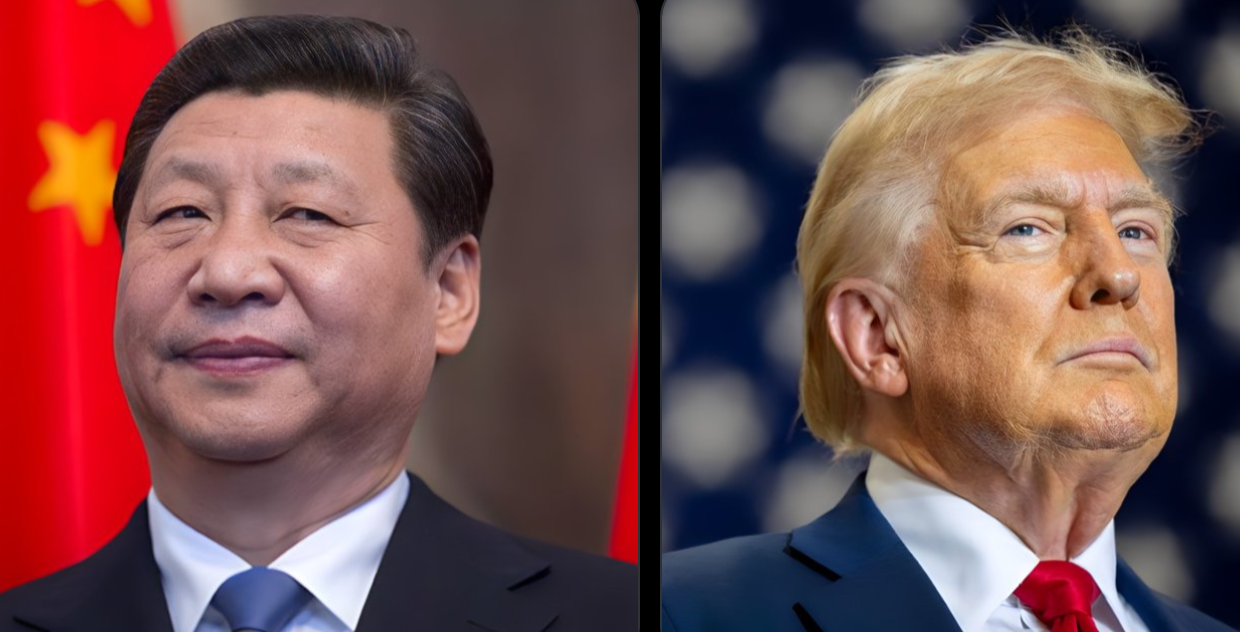

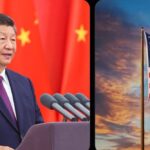
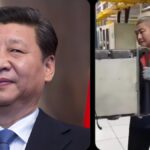
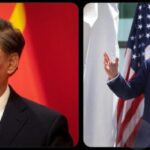
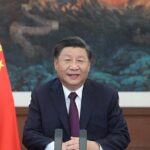
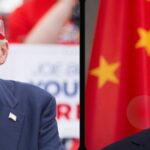
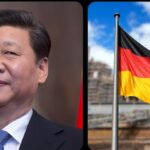









Post Comment